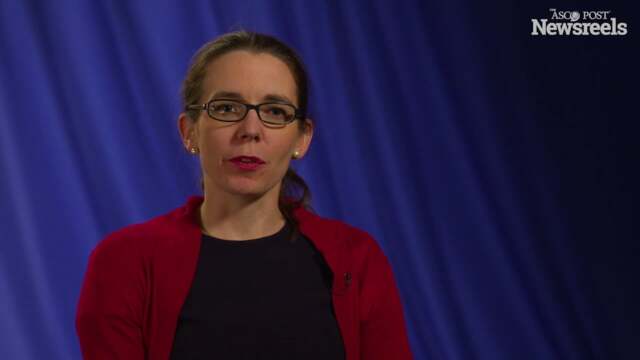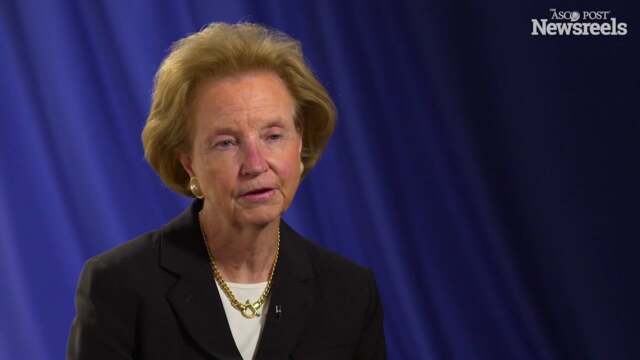Kathleen Elizabeth Bickel, MD, MPhil, on Defining High-Quality Palliative Care in Oncology Practice
2015 Palliative Care in Oncology Symposium
Kathleen Elizabeth Bickel, MD, MPhil, of the White River Junction VA Medical Center, discusses the ASCO/AAHPM Guidance Statement, which will help oncology providers enhance their delivery of palliative care (Abstract 108).
Betty Ferrell, PhD, RN
Betty Ferrell, PhD, RN, of City of Hope, discusses two papers that look at an important issue from different perspectives: depression and anxiety among family caregivers of patients with advanced cancer, and the link between oncologists’ dispositional affect and depressive symptoms in their patients with metastatic cancer (Abstracts 224, 214).
Judith Vick, MD Candidate, and Rachelle E. Bernacki, MD
Judith Vick, MD Candidate, of Johns Hopkins University School of Medicine, and Rachelle E. Bernacki, MD, of Dana-Farber Cancer Institute, discuss a tool that could help clinicians identify seriously ill patients who would benefit from conversations about their goals and values (Abstract 8).
Amelie Harle, MD
Amelie Harle, MD, of the Christie NHS Foundation Trust, discusses a clinical trial––the first of its kind—designed to assess the efficacy of an antitussive in patients with lung cancer (Abstract 2).
Judith Paice, PhD, RN
Judith Paice, PhD, RN, of Northwestern University, reviews the current principles on assessing and treating neuropathic pain in cancer.
Kathleen Foley, MD
Kathleen Foley, MD, of Memorial Sloan Kettering Cancer Center, discusses the challenges of integrating palliative care in areas without sufficient resources or health-care infrastructure.





